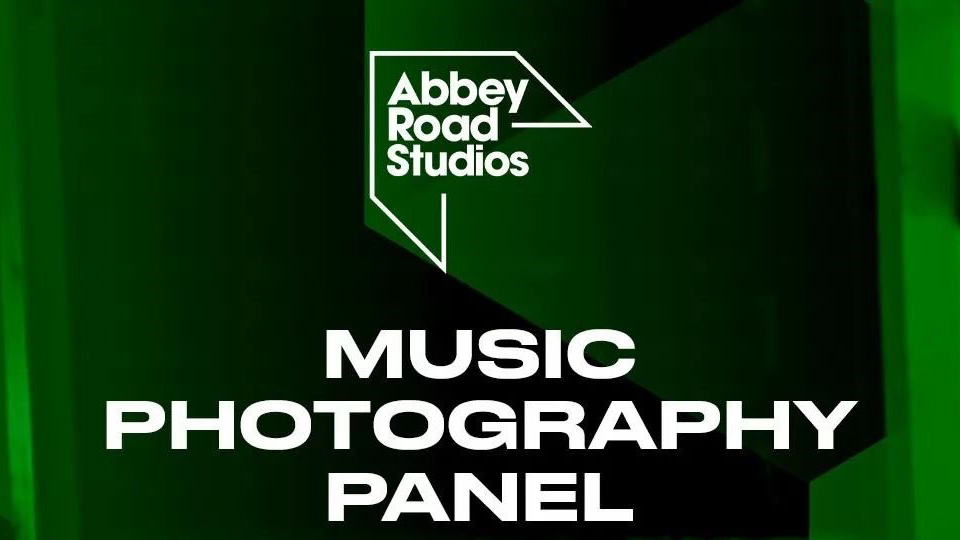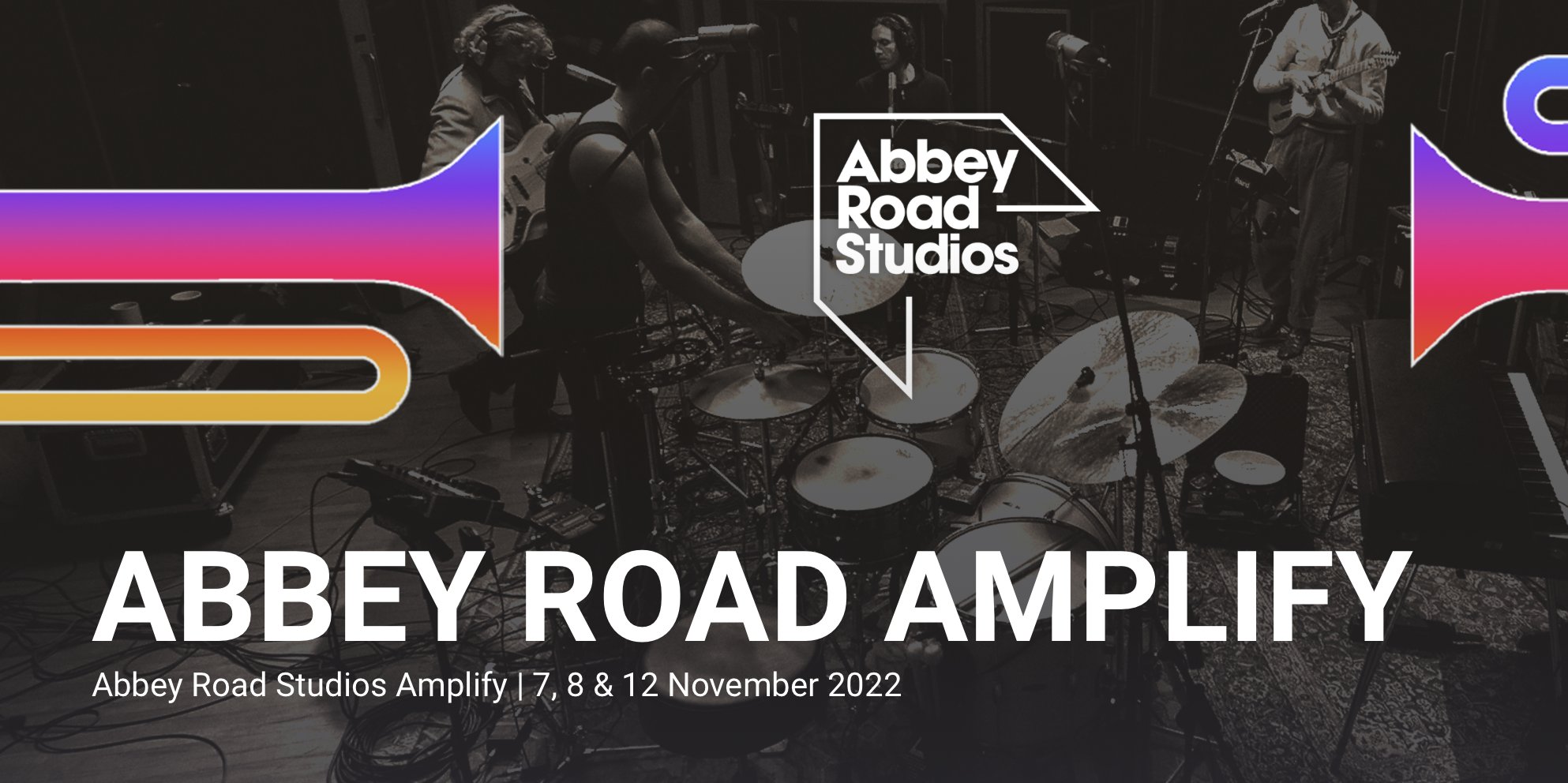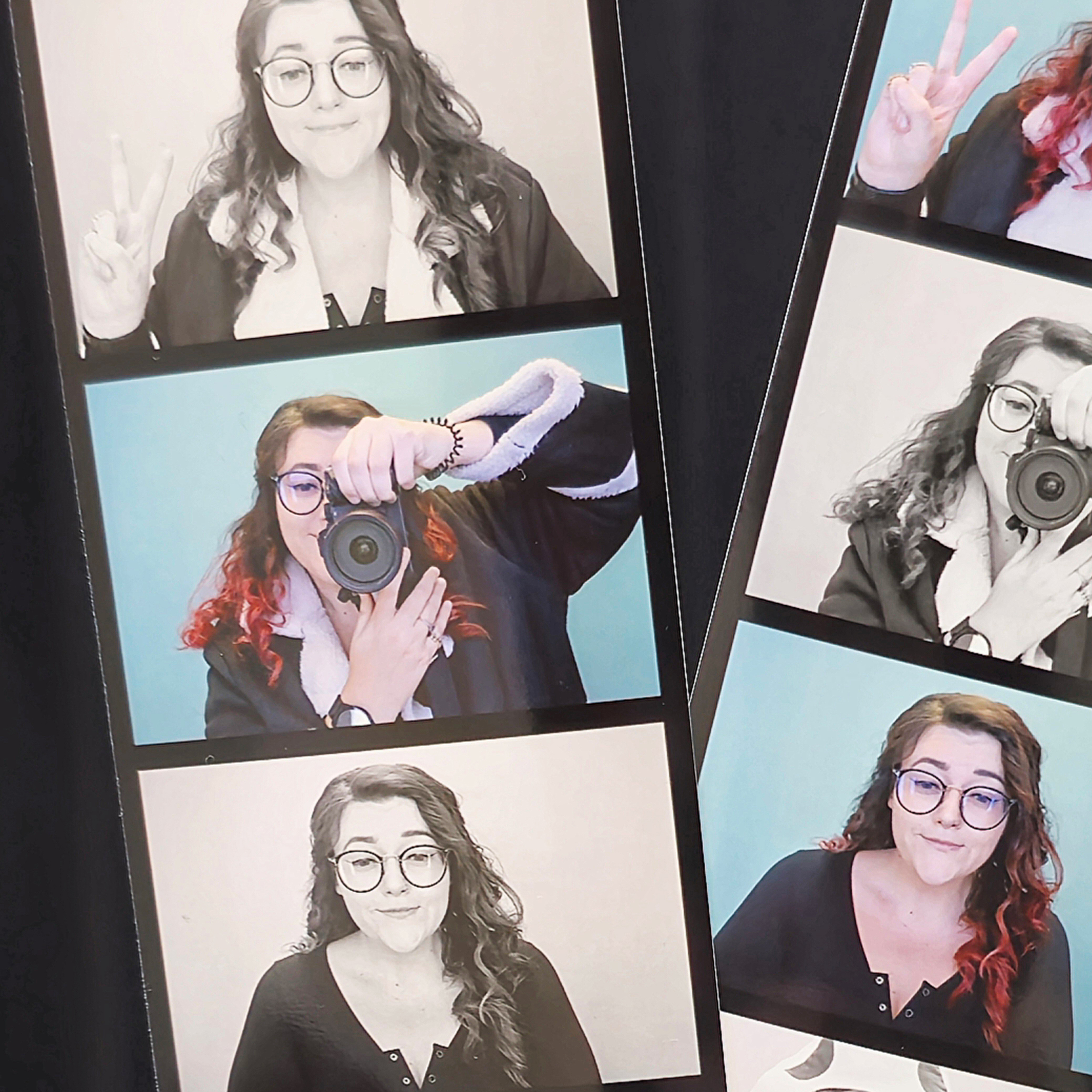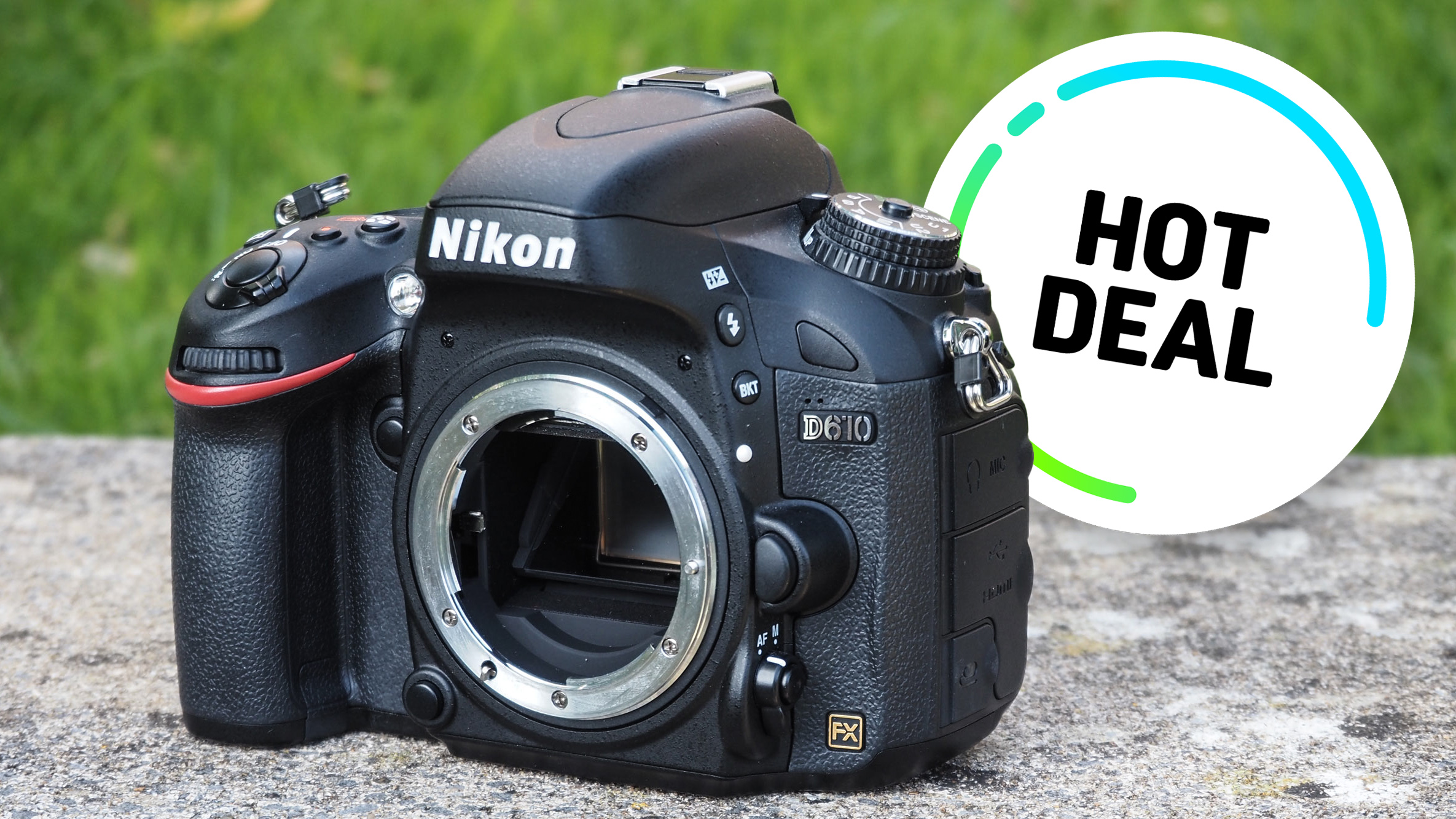Music Photography: What you need to know, according to the legends
The best insight on the industry from legend Jill Furmanovsky, plus Anaïs Gallagher, Isha Shah, Vicky Grout and Joe Puxley

This morning, Abbey Road Studios in London, UK hosted an Amplify Music Photography Panel that included some very special guests. Hosted by former NME picture editor, Marian Paterson, the studio opened its doors to budding music fans, with a panel comprising of legendary music photographer Jill Furmanovsky, as well as Anaïs Gallagher, Isha Shah, Vicky Grout, and Joe Puxley.
Live-streamed on Youtube, the Amplify Music Photography Panel welcomed questions from both online and in-person spectators and discussed everything from shooting live shows to the importance of shoot preparation, using social media as a marketplace, and how fashion and music photography are beginning to blur lines.
• See our recent interview with music photography icon Denis O'Regan
The panel sit in a row adjacent to the live audience at Abbey Road studios, legendary in its own right for being the most famous recording studio in the world! Jill Furmanovsky is on the far left, seated next to Anaïs, then Isha, Joe, Vicky and panel host, Marian. All fantastic music photographers and industry experts, the panel gave some unique perspectives on how they approach and navigate the rapidly changing industry and profession as a music photographer.
In celebration of the studio's 91st Anniversary, Abbey Road Studios has now for a second year opened its doors to creatives for a free three-day Amplify festival, aimed to inspire the next generation of music industry artists, producers, and composers through a scheduled series of panel discussions, masterclasses and Q&A's as presented by some of the music industry’s leading names.
The Amplify Music Photography panel lasted well over an hour and a half, and several key snippets from the discussion with these sharp shooters can be found below, though we'll go into further detail on many statements and elements that particularly stood out to us throughout the panel and the best advice and insight from these experts that we feel really hits the nail on the head.
Learn more about the panel
A post shared by Abbey Road Studios (@abbeyroadstudios)
A photo posted by on
Planning and creativity
Jill Furmanovsky may have had one or two microphone faults during the panel, but that didn't stop her from providing a very informed perspective on how the music and photography industries have changed and evolved into the format they are today. "I've been on the journey from analog to digital, and I did embrace photoshop from the very beginning" she states. Jill is something of a legend, and expresses that becoming a professional music photographer has always been her passion, showing the panel her necklace that features an icon of both a camera and a guitar.
Get the Digital Camera World Newsletter
The best camera deals, reviews, product advice, and unmissable photography news, direct to your inbox!
Joe Puxley, on the other hand, is on the opposite end of the timeline, at just 21 years old and relatively new to the industry - presented with the Undiscovered Award at the recent Abbey Road Studios Music Photography Awards 2022. Joe says he's always found a lot of fantasy in music and recalls his love for working with artists like Arlo Parks who embrace his creative vision and can collaborate well together.
"Some of my work will have a shoot plan for the entire day, but some of the best shots are at the end of the day when we scrap the planning and just be creative" he answers to a question on preparation, referring to the time that he nervously got the bus to his very first shoot with Parks, and they ended up snapping images in a phone booth as his initial shoot plan was scrapped.
"There's a lot less preparation for live music vs studio work" shares editorial music photographer, Vicky Grout, expressing that while she shoots live music a lot less lately, the investment in getting to know and understand your subject in the studio is part of the art itself. "It's nice when an artist will permit you to get close to them", she says, "build a connection with the artist, and if you actually like their music it will come through in the imagery and if you're not passionate about what you're photographing then people can definitely tell".
Planning vs. Creativity on a shoot #JoePuxleyWatch live: https://t.co/RCbt0h5Xtv#MarianPeterson @vickygrout @gallagher_anais @Astr0Isha #JillFurmanovsky @Rockarchive #AbbeyRoadAmplify pic.twitter.com/T8jJKdU1m1November 8, 2022
Artist collaboration
The topic of creative vision, nerves, collaboration, and handling a difficult artist came up - to which digital music photographer and post-production expert Isha Shah weighed in that "I use a lot of prisms and experimental work, but if I'm working with a rapper, that's not their brand", she continues "the best thing is movement, getting them[the artist] to do small steps and then capture their essence". She also noted the positive impact of "gassing up" the artist, and giving them encouragement during shoots and extra support when modeling in the studio environment.
Joe also stated that "being strong in your ideas will make artists feel more confident in you and trust your vision, instead of just going along with whatever they want to do". He notes that when he first started out he was "obsessed with the sharpest and cleanest image" but now has a new perspective and understands that "we're trying to see the humanity and get the imperfections" when shooting a subject, and compares this to the Japanese art of Kintsugi, repairing broken vases with gold.
Continuing the topic of collaboration with an artist, music photographer, and analog film shooter Anaïs Gallagher, also the daughter of Oasis' Noel Gallagher, shared that "I like to capture people just making a cup of tea or in their natural environment...it's important to capture the moment as frankly as possible, and by lifting the veil".
She expands that "you're distilling who they are into one single image, as a human and an artist" making the point that "when an artist is writing an album, some of the first things they think about are their album covers, visualizing photography alongside their music" and that's why collaboration is so important.
.@VickyGrout on music in studio photography.Tune in to our ‘Music Photography’ panel: https://t.co/RCbt0ho6HD#AbbeyRoadAmplify pic.twitter.com/EFRk3ab2MyNovember 8, 2022
Studio music portraiture
The word "passionate" was thrown around a lot during this segment, and Vicky explains that it's important to connect with an artist, and sometimes artists strangely like to be calmed by listening to their own music during studio shoots. It's okay for photographers themselves to be nervous during shoots, too, as Jill reiterates that not all music photographers have to be super outgoing.
"I'm very much a fly on the wall and try to be discreet, but now and then it is important to come out of your comfort zone and try something completely different." Shares Jill, "things can go wrong, but sometimes being real and human by making mistakes actually eases the artist".
She proceeds to share a funny story of putting vaseline around a filter to create an effect, "in the early years when I was shooting Pink Floyd, designer Storm Thorgerson was a great influence on my work, I had some vaseline that I put around the edge of a filter, but then I kept forgetting to take it off, and I'd left it on when shooting with The Police by accident."
I'm quite often a nervous wreck before every shoot because so much can go wrong, but then some survival instinct kicks in from the nervousness that produces something unexpected"
Jill Furmanovsky
Analog or digital?
When discussing the differences between analog and digital photography, a few of the panel members were divided on where they stand. Vicky shared that, "I started on analog, I had a 35mm point-and-shoot, and then I eventually started getting commissions where I had to turn around images on the same day".
Isha, on the other hand, is a digital doyenne, confessing that "I use a lot of star filters and pro-mist filters, and in post-production I do double exposures, mirroring and super-imposing, I don't do film at all." She continues, "it's all about knowing what I do and adapting to that. I'm there for people who are very creative and want to see themselves from different angles."
Digital vs. film photography #JillFurmanovsky @Rockarchive #AbbeyRoadAmplify pic.twitter.com/VjRg5vic1nNovember 8, 2022
Anaïs leans heavily toward the analog process of photography having grown up with it, explaining that "the first camera I got given was an analog as a gift when I was 14, I'm also someone who repels technology, it's something that I've had to learn, and I didn't think about shooting digital until I went to university."
"I think it's important to know as much as you can so that you can do as much as you can...I learn the most from watching other people and learning their process".
Panel host Marian shared that as somebody who commissions photography, "it is usually digital" due to factors such as cost and turnaround as Vicky discussed. Marian explained that as a picture editor, there's a skill in picking the right photographer for the job, "you can usually tell what a band sounds like from looking at the shots." she says, and "when you think about your favorite artist or band you immediately have a photo in your head."
Musicians definitely have the most sense of self out of anyone you could possibly photograph"
Vicky Grout
Shooting live music and choosing gear
Circling the conversation back to live music photography, an audience member asked the panel what their go-to gear is. "When on tour you have to pack smart, choosing the standard go-to lenses is really important...live music is so fast, so I always shoot with two cameras so that each camera has the lens ready", shared Isha.
"It's important to be prepared and pack batteries and equipment the night before...so many times I've forgotten an SD card and had to run to the shop and buy one" she admits. As for what she shoots with, Isha is team Canon, however, she recommends that new music photographers start out with a Sony A7III and cheap secondhand lenses from the likes of eBay and Wex.
Joe says his favorite camera is a medium format Bronica ETR-S, though he occasionally uses Yongnuo 560 Mark II Speedlight flashes with wireless triggers that are, again, pretty cheap on eBay for a newcomer to the practice.
Vicky weighed in that "I'll usually try and pack one or two lenses for a gig, one wide-angle and one cropped for the stage". Marian adds that having worked with the NME to organize tours and photographers, you can get backstage and AAA access if you ask for it, but make sure it's with plenty of time.
Anaïs very honestly admits that "I was never very good at live music photography, I shoot analog and use cameras that take a lot of care, I have a more meticulous mind that's not made for faster shooting". She also very candidly suggests that she would encourage a client to hire a photographer that could do a better job, stating the importance of "knowing your own limitations for your own benefit, and don't agree to do something you're not inspired by".

Social media business
Talking about social media, the panel group all pretty much agree that whether we like it or not as photographers, it's the future of the industry. "I've been expanding my craft and teaching myself about 3d models" explains Isha, "I started my career on social media, and it's the tool to use, as local jobs will come up".
Being heavily immersed in London's culture, Isha also delves into creative fields such as radio, events, podcasting, and videography - and by expanding her craft, Isha has set up her own creative networking hub called Root Creatives, where UK creators can collaborate on projects while networking and expanding their empire.
The topic of fashion photography and TikTok also came up, and many believe that the two genres can now go hand-in-hand. Isha believes that "fashion is an investment into a musician's craft", and Vicky can't stress enough the importance of always hiring a stylist on set, as sometimes musicians can rock up in just a t-shirt.
Bands can also supposedly feel a little embarrassed in hiring a heavily overqualified photographer just to shoot a TikTok for them, but the reality is that it's what the labels want, and what social media currently favors.
Please note that quotes used from speakers may not be entirely word-for-word and were compiled during super quick note-taking and observation from watching the panel live-streamed via Abbey Road's YouTube channel.
This Music Photography Amplify panel from Abbey Road Studios was honestly a breath of fresh air to watch, and so nice to see a panel comprised of mostly female talent and hosts in an industry that has been criticized for being predominantly male-dominated.
It's also fantastic to see an industry and relatively niche medium of photography come together in support and guidance by sharing tips and gear advice, as opposed to guarding the industry secrets against the competition.
The Abbey Road Studios Amplify events continue on November 12, 2022, where the event schedule and panel sessions can be found on the studio's website, starting from 10 am up until 6:15 via the YouTube live stream link above.
You may also want to take a look at the best camera settings for live music photography, as well as 5 essential tips for editing live music photos, by expert Christie Goodwin, our Interview with Music photographer Jennifer McCord, and be sure to get your live music images ready for the Abbey Road Studios Music Photography Awards in 2023.

Beth kicked off her journalistic career as a staff writer here at Digital Camera World, but has since moved over to our sister site Creative Bloq, where she covers all things tech, gaming, photography, and 3D printing. With a degree in Music Journalism and a Master's degree in Photography, Beth knows a thing or two about cameras – and you'll most likely find her photographing local gigs under the alias Bethshootsbands. She also dabbles in cosplay photography, bringing comic book fantasies to life, and uses a Canon 5DS and Sony A7III as her go-to setup.
